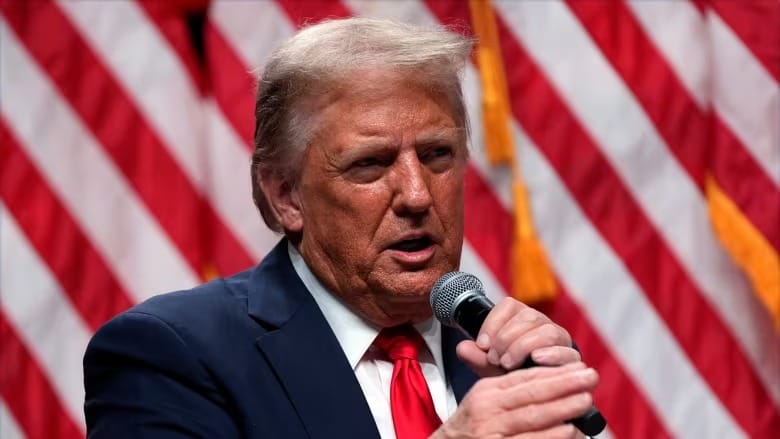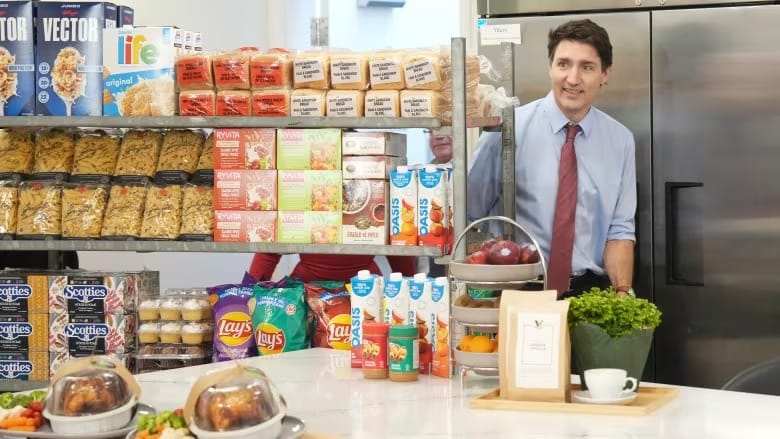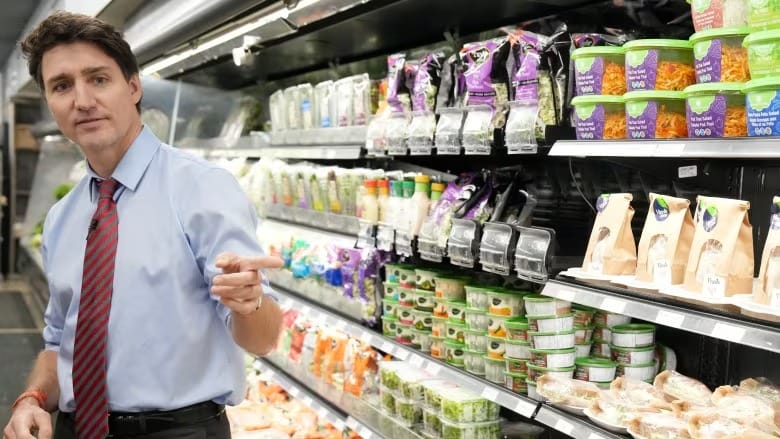Trump tariffs would hit Canada 'faster and harder' than most: former top Trudeau aide
Republican presidential candidate is calling for a minimum tariff of 10% on all global imports

Gerald Butts, former principal secretary to Prime Minister Justin Trudeau, stated that Donald Trump's proposed 10 percent tariffs on imports would impact Canada "faster and harder than just about anyone else," due to the close trading ties between the two nations.
The former U.S. president and current Republican candidate has advocated for a minimum 10 percent tariff on all imports entering the United States. Sources have informed CBC News that Trump's allies have provided no guarantees of leniency for Canada.
In an interview with CBC's The House, Butts told host Catherine Cullen that he is "not sure there's going to be a way of talking Donald Trump out of this." He added, "So it's more about how do you prepare for that, and how do you prepare for the inevitable global economic fallout that will come from a Trump presidency?"
During his tenure as Trudeau's top aide, Butts participated in numerous meetings with Trump. He expressed that while he would like to believe Trump's behavior is "an act for the cameras, it's not. The person that you see in front of the cameras is the same person that you see behind closed doors."
Butts noted that Trump is unafraid to leverage access to the U.S. market to achieve his negotiation goals. "He believes the winner of all negotiations is the person who has the most leverage," he added.
Canada has already begun discussions with members of Trump’s inner circle regarding the avoidance of new trade tariffs if he is elected. The federal government has warned of potential retaliation against U.S. goods if tariffs are imposed on Canada.
Butts mentioned that Trump "is a relationship person," highlighting the importance of maintaining a cordial and professional relationship with those around him. He noted that he has spent time with Trump's son-in-law and adviser Jared Kushner, as well as Robert Lighthizer, Trump's former trade czar, who has cited previous U.S. tariffs as successful measures.
"I'm not sure who those people will be in those roles next time, but developing that personal relationship is really important because [Trump] leans on it," Butts said. "It's the modus operandi from his time in the private sector."
According to a senior government source, Canadian officials have reached out to both the Harris and Trump campaigns to request a congratulatory phone call with the election winner.
Harris Win Could Also Bring Challenges
Butts cautioned that even if Democratic candidate Kamala Harris wins the election, Canada should not "kick back and think that everything's going to be rosy." He noted, "If [Harris] gets elected, she'll get elected because Wisconsin, Michigan, and Pennsylvania voted for her," referring to three critical swing states where both Trump and Harris have concentrated their campaigns. "If you look at Congress, those areas tend to be represented by relatively protectionist members."
Butts pointed out that many Canadians have grown accustomed to a U.S. foreign policy characterized by free trade and open borders with Canada, but that political consensus is diminishing and "hasn't been replaced by anything yet." Experts have informed CBC News that a Harris victory is likely to result in a continuation of the current status quo.
While trade disputes have occurred between Canada and the U.S. under President Joe Biden over issues like tariffs on Canadian softwood lumber, experts contend that a Trump presidency poses a greater threat due to his inclination toward tariffs.
Certain questions remain "relatively up in the air," Butts said, including whether a Harris administration would seek to renegotiate the Canada-United States-Mexico Agreement, which is due for review and renewal in 2026.
Trump Promises Mass Deportations
Trump has also vowed to pursue mass deportations of undocumented immigrants if elected. Experts have warned CBC News that crackdowns in one jurisdiction could lead to an influx of migrants into another, suggesting that widespread deportations in the U.S. could push migrants into Canada.
Jason Kenney, who served as immigration minister under former Conservative Prime Minister Stephen Harper, emphasized that Canada needs to take this possibility "very, very seriously." "We can't cope with the current burden in our [immigration] system," Kenney told Cullen. "If you add significant new pressure, it could completely overwhelm our ability to legally process additional claims and house people."
In 2017, a significant number of Haitians crossed through Roxham Road near Hemmingford, Quebec, bringing attention to this previously little-known border crossing. In March 2023, Canada and the U.S. agreed to amend the Safe Third Country Agreement to cover the entire land border instead of just official crossings.
Kenney acknowledged these changes but stated, "if you have a large number of people pouring across various illegal border crossings, we don't have the ability to police that." He added, "It's something that at the very least should be on our radar screen. Historically, this is likely to occur with an administration committed to large-scale removals."
In a statement to CBC, a spokesperson for Immigration Minister Marc Miller remarked that "our government has worked with many administrations and will continue to collaborate with the U.S. and partners across our government on all matters related to our shared border."





